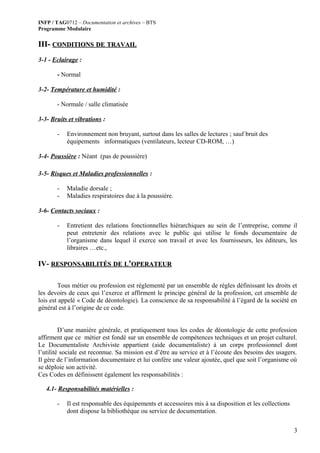Palm Springs IVF Clinic Bombing Suspect's Antinatalist And Pro-Mortalist Ideology

Table of Contents
Understanding Antinatalism and its Core Tenets
Antinatalism is a philosophical position that assigns a negative value to birth. Antinatalists argue that it is morally wrong to bring new people into existence due to the inherent suffering and hardship of life. This is not simply a preference against having children; rather, it's a deeply held belief that procreation is inherently unethical. The philosophical arguments supporting antinatalism often center on several key points:
- The Problem of Suffering: Antinatalists argue that life inevitably involves suffering, both physical and emotional. Bringing someone into a world guaranteed to contain suffering is considered morally problematic.
- Overpopulation and Environmental Concerns: The increasing strain on Earth's resources and the environmental consequences of a growing population are frequently cited as reasons to oppose procreation.
- Lack of Consent: A core argument is that a child does not consent to being born, and therefore, bringing a child into existence without their consent is a violation of their autonomy.
It is crucial to differentiate antinatalism from other related, yet distinct ideologies. While some antinatalists may also be misanthropic (hating humanity) or nihilistic (believing life is meaningless), these are not inherent components of antinatalism.
- Key arguments used by antinatalists: Suffering, lack of consent, environmental damage, overpopulation.
- Common misconceptions about antinatalism: Antinatalism is not inherently violent; it is a philosophical position, not a call to action. It is often confused with misanthropy or child-hatred.
- Prominent figures or writings associated with antinatalism: David Benatar's "Better Never to Have Been" is a seminal work in antinatalist thought.
Exploring Pro-Mortalism and its Implications
Pro-mortalism, while related to antinatalism, focuses on the value of death. Unlike antinatalism, which primarily concerns the creation of life, pro-mortalism addresses the end of life. Pro-mortalists may argue that death is not inherently bad and that there are even positive aspects to it. This can range from a passive acceptance of death to active promotion of it, a much more controversial position.
The ethical considerations of pro-mortalism are complex and often debated. Passive pro-mortalism, which involves accepting death as a natural part of life, is generally less controversial than active pro-mortalism, which may involve advocating for euthanasia or suicide.
- Key beliefs and practices within pro-mortalism: Acceptance of death as natural, questioning the value of life extension, potentially advocating for assisted dying.
- Differences between passive and active pro-mortalism: Passive pro-mortalism is accepting; active pro-mortalism is promoting death through action.
- Potential connections between pro-mortalism and violence: While not inherently violent, active pro-mortalism could, in extreme cases, be interpreted as justification for violence.
Linking the Suspect's Ideology to the Palm Springs IVF Clinic Bombing
To understand the Palm Springs IVF clinic bombing, we must analyze the suspect's alleged beliefs. While specifics may vary depending on the ongoing investigation, any evidence of antinatalist or pro-mortalist views would be crucial in interpreting the act. The targeting of an IVF clinic, a symbol of reproductive technology and the creation of life, could be seen as a symbolic act of anti-natalist or pro-mortalistic extremism.
- Specific evidence linking the suspect to antinatalist/pro-mortalist groups or ideologies: This will depend on the investigation's findings, including online activity, affiliations, and statements.
- Analysis of the bombing’s symbolic significance: The targeting of an IVF clinic suggests a direct attack on the creation of life, aligning with antinatalist ideologies.
- Potential motivations beyond simple antinatalism/pro-mortalism: Mental health issues, other personal grievances, or other extremist influences should also be considered.
The Broader Context: Antinatalism, Pro-Mortalism, and Violence
It's crucial to examine the relationship between antinatalism and pro-mortalism and the potential for violence. While the vast majority of antinatalists and pro-mortalists do not advocate for violence, the potential for extremism within any ideology exists. Online echo chambers and the spread of misinformation can radicalize individuals and contribute to the normalization of violence.
- Examples of similar incidents motivated by extreme ideologies: Studying historical and contemporary examples helps to understand the patterns and triggers of such violence.
- Strategies for countering extremist ideologies online: Promoting critical thinking, media literacy, and responsible online behavior are vital.
- The importance of promoting critical thinking and responsible online behavior: Encouraging healthy skepticism and fact-checking can help prevent the spread of dangerous ideologies.
Conclusion: Understanding the Palm Springs IVF Clinic Bombing and the Dangers of Extremist Ideologies
The Palm Springs IVF clinic bombing underscores the importance of understanding the complexities of antinatalist and pro-mortalist ideologies. While these philosophies are not inherently violent, the potential for extremism within any belief system highlights the need for careful analysis and critical thinking. The bombing serves as a stark reminder of the dangers of radicalization and the crucial need to address the spread of extremist views online. Research the Palm Springs IVF Clinic Bombing suspect's antinatalist ideology to better understand the motivations behind such acts of violence. To learn more about countering extremism and promoting responsible online behavior, explore resources from organizations dedicated to combating hate speech and promoting critical thinking. Understanding these ideologies is critical to preventing future acts of violence motivated by extreme beliefs.

Featured Posts
-
 Formation Archiviste Poitiers Devenez Un Professionnel Des Archives
May 19, 2025
Formation Archiviste Poitiers Devenez Un Professionnel Des Archives
May 19, 2025 -
 You Tuber Arrested For Spying Isi Connection And Punjab Espionage Ring
May 19, 2025
You Tuber Arrested For Spying Isi Connection And Punjab Espionage Ring
May 19, 2025 -
 Did Mairon Santos Win At Ufc 313 A Look At The Santos Marshall Bout
May 19, 2025
Did Mairon Santos Win At Ufc 313 A Look At The Santos Marshall Bout
May 19, 2025 -
 Credit Mutuel Am La Geopolitique Exacerbe Les Pressions Environnementales Maritimes
May 19, 2025
Credit Mutuel Am La Geopolitique Exacerbe Les Pressions Environnementales Maritimes
May 19, 2025 -
 Meac Softball Coach Of The Year Norfolk States Angie Nicholson
May 19, 2025
Meac Softball Coach Of The Year Norfolk States Angie Nicholson
May 19, 2025
